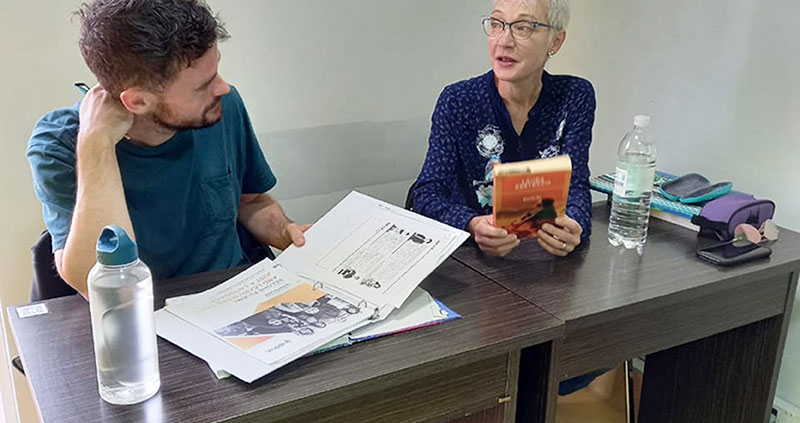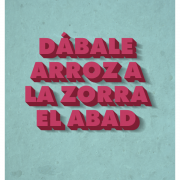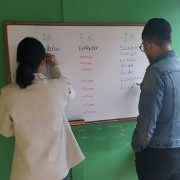Easy guide to reflexive verbs and pronouns in Spanish
The word “reflexive” means something is directed towards the self. Therefore, “verbos reflexivos” (reflexive verbs) are verbs that indicate that the subject is performing an action on themselves.
Reflexive verbs always go together with reflexive pronouns, always. You can’t have one without the other. Thus, let’s start with the reflexive pronouns.
What are the reflexive pronouns in Spanish?
A reflexive pronoun indicates that the doer and the receiver of the action are the same in a sentence.
In English, the reflexive pronouns end with “self” or “selves.” For example: “himself,” “myself,” “ourselves,” and “themselves”.
In Spanish, there are four reflexive pronouns:
- “me,”
- “te,”
- “se,” and
- “nos”.
There is a fifth reflexive pronoun used only in Spain “os,” but since we are focusing on Colombian Spanish, we are not including it here.
| Subject | Reflexive pronoun (Spanish/English) | |
| Yo (I) | Me | Myself |
| Tu/Usted (You) | Te | Yourself |
| Él/Ella (He/She) | Se | Himself/Herself |
| Nosotros (We) | Nos | Ourselves |
| Ustedes (You) | Se | Yourself |
| Ellos/Ellas (They) | Se | Themselves |
Where to place reflexive pronouns in Spanish?
Reflexive pronouns are typically placed before conjugated verbs, even when we use negative or interrogative sentences:
- Yo me baño todas las noches antes de dormir.
I take a shower every night before I go to sleep. - ¿Te despiertas temprano?
Do you wake up early? - Ella se queda todos los domingos en su casa.
She stays at home every Sunday. - No te preocupes, todo está bien.
Don’t you worry, everything is fine.
However, as usual, there are exceptions to the rule.
There are three exceptions in which the reflexive pronoun is used after the verb, together with the verb (no spaces)
1. Infinitive forms of the verb
As we mentioned at the beginning of this article, reflexive verbs are ALWAYS together with a reflexive pronoun. And when we say “always,” it means “always,” including in the infinitive form of the verb
- Levantarse
Acostarse
Quedarse
Arrepentirse
3. Imperative
When using imperatives, the reflexive pronoun is also placed after the verb.
- ¡Quédate quieto!
Stay still! - ¡Siéntate!
Sit down!
2. Progressive verbs (-ing)
When using verbs in their progressive form, the reflexive pronoun is also placed after the verb.
- Estaba duchándome cuando sonó el teléfono.
I was taking a shower when the phone rang - Espera, estoy cepillandome los dientes.
Wait, I’m brushing my teeth
What are reflexive verbs in Spanish
Now that we have learned how to use reflexive pronouns, let’s move to reflexive verbs.
When to use reflexive verbs in Spanish?
We use reflexive verbs mainly in the following five categories:
1. Verbs that describe daily routines
For example:
- “Despertarse” (to wake up),
- “peinarse” (to comb the hair), and
- “bañarse” (to shower).
2. Verbs that describe motion or movement
For example:
- “Irse” (to leave), and
- “moverse” (to move).
3. Verbs that describe emotions and moods
For example:
- “aburrirse” (to get bored),
- “preocuparse” (to worry), and
- “alegrarse” (to rejoice).
4. Verbs that are reciprocals
These verbs are only reflexive in their plural forms and are used when two or more people are performing an action together or doing something to each other.
For example:
- “casarse” (to get marry),
- “encontrarse” (to meet)
5. Verbs that are always reflexive
There is a small number of verbs that are always reflexive.
For example:
- “quejarse” (to complain),
- “darse cuenta” (to realize),
- “arrepentirse” (to regret)
How to conjugate reflexive verbs in Spanish?
For conjugating reflexive verbs, you should place the reflexive pronoun before the verb and then conjugate it accordingly.
Let’s see an example with the verb “bañarse” (to shower)
Verb: Bañarse
| Yo (I) | Me baño |
| Tú/Usted (You) | Te bañas |
| El/ella (He/She) | Se baña |
| Nosotros / Nosotras (We) | Nos bañamos |
| Ustedes (They) | Se bañan |
| Ellos/Ellas (They) | Se bañan |
What are the most common reflexive verbs in Spanish?
Lastly, to make your life easier we have prepared a list of the 40 most common reflexive verbs:
- Aburrirse – to get bored
- Acordarse – to remember
- Acostarse – to go to bed
- Acostumbrarse a – to get accustomed to (to get use to)
- Afeitarse – to shave
- Alegrarse – to become (be) happy
- Arreglarse – to get ready
- Amañarse – Only used in Colombia. It refers to feeling good, happy, and settled in a place
- Asustarse – to get or become afraid
- Atreverse a – to dare to
- Bañarse – to take a bath
- Calmarse – to calm down
- Cansarse – to get tired of
- Casarse – to marry
- Cepillase – to brush (hair, teeth..)
- Darse cuenta de – to realize
- Despedirse de – to say goodbye
- Desayunarsse – to eat breakfast
- Despertarse – to wake up
- Desvestirse – to undress
- Divertirse de – to have fun
- Dormirse – to go to sleep
- Ducharse – to shower
- Emocionarse – to get excited
- Enamorarse de – to fall in love with
- Encontrarse con – to meet with
- Enfermarse – to get sick
- Enojarse – to get or become angry
- Irse – to go (away) or to leave
- Levantarse – to get up
- Maquillarse – to put makeup on
- Moverse – to move oneself, to do or be in charge of
- Peinase – to brush or comb hair
- Ponerse – to put on (clothing), to get dressed
- Preocuparse de – to worry about
- Quejarse de – to complain about
- Quedarse – to remain/ to stay
- Sentarse – to sit down
- Sentirse – to feel
- Vestirse – to get dressed
We hope you have enjoyed this article.
If you want to take your Spanish to the next level, join any of our in-person or online classes. Visit our website and social media channels to see how it is learning Spanish with us!
Don’t forget to read our monthly blog to learn more about the Spanish language and Colombian culture!
See you soon!












